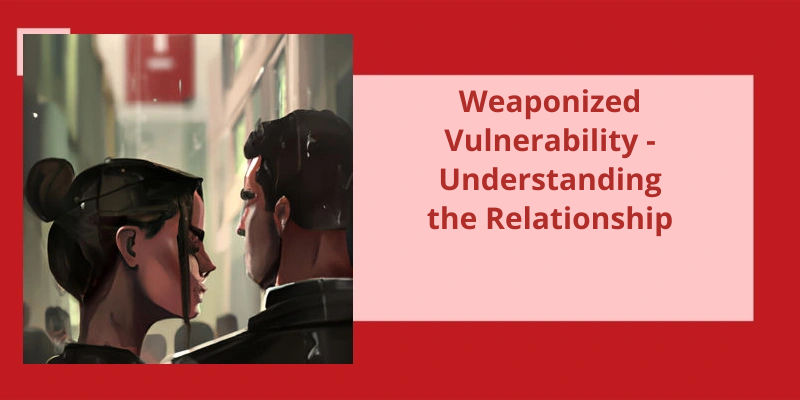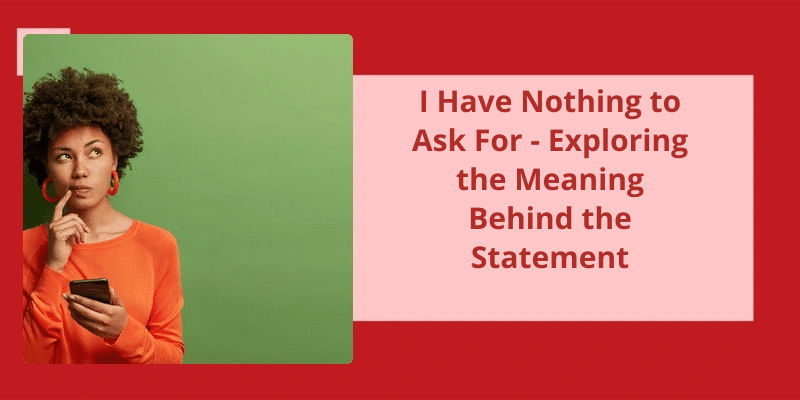In recent years, the concept of weaponized vulnerability has emerged as a major concern for the cybersecurity community. This refers to the practice of exploiting previously unknown or unaddressed vulnerabilities in software, hardware, or other systems to gain unauthorized access or launch attacks. As technology continues to advance, the potential for weaponized vulnerability to be used in damaging ways only increases. It’s therefore essential for individuals and organizations to stay up-to-date on the latest security measures and take proactive steps to mitigate their vulnerability to these threats.
What Does Vulnerability in Relationship Mean?
Being vulnerable means admitting your flaws, sharing your deepest thoughts and emotions, expressing your needs and desires, and being fully present in the moment with your partner. It requires trust, honesty, and courage to let someone see the real you, without walls or defenses. Vulnerability in a relationship is a sign of authenticity and intimacy, two essential elements for a healthy and fulfilling connection.
When youre vulnerable with your partner, youre saying, “I trust you enough to let you in, even if it scares me.”. It’s a powerful message that can create a deep sense of closeness and empathy between two people. When you share your fears, insecurities, and vulnerabilities with your partner, you allow them to see you in a different light. They can then recognize and appreciate your strengths, as well as accept and love you for who you are.
However, vulnerability doesn’t mean blindly trusting someone or overlooking red flags. It’s important to be aware of your boundaries and communicate them clearly to your partner. It’s about finding a balance between opening up and protecting yourself from harm.
It’s also important to note that vulnerability is a two-way street. Both partners need to be willing to share and listen in order to create a meaningful connection. When one partner is vulnerable, it can inspire the other to do the same. This reciprocal vulnerability can lead to a greater sense of understanding and acceptance between partners, as well as a stronger bond.
It requires trust, courage, and authenticity, and can lead to greater intimacy and connection between two people. However, it’s important to set boundaries and protect yourself from harm, as well as to be aware of your partners needs and feelings.
Recognizing and embracing vulnerability can be challenging for anyone, but for men, it can be particularly difficult due to societal expectations and gender norms. However, vulnerability shouldn’t be seen as a weakness. In fact, it can be a sign of strength and courage to be open and honest about one’s emotions and struggles. With this in mind, it’s important to understand why vulnerability is often viewed negatively in men and how men can learn to embrace it as a valuable part of their lives.
Is Vulnerability a Weakness in Men?
It takes courage to let down your guard and show your true self to someone. Vulnerability allows for deeper connections and stronger relationships. It shows that you trust someone enough to reveal your innermost thoughts and feelings. This vulnerability in men should be celebrated rather than ridiculed.
Unfortunately, society has perpetuated the idea that men should be stoic and unemotional. This can lead to men suppressing their feelings and not seeking help when they need it. It’s important to remember that vulnerability doesn’t mean weakness. In fact, being vulnerable can be a sign of strength and self-awareness.
Vulnerability can also be a tool for personal growth. By acknowledging our vulnerabilities and working to overcome them, we can become more resilient and confident in our abilities. It can be scary to face our vulnerabilities, but ultimately it can lead to greater self-acceptance and personal development.
It’s important to break down the stereotypes surrounding vulnerability in men. Men should feel empowered to express their emotions and seek help when needed without fear of judgment.
Different Types of Vulnerability: Emotional Vulnerability, Physical Vulnerability, and Social Vulnerability.
This article discusses the various types of vulnerability that individuals may experience, including emotional, physical, and social vulnerability. It explores how each type of vulnerability can impact a person’s well-being and suggests strategies to address these vulnerabilities.
Source: Men and Vulnerability | U-M Counseling and Psychological …
Conclusion
In conclusion, the weaponization of vulnerability is a complex issue that’s profound implications for individuals, organizations, and society as a whole. At it’s core, this relationship is based on the exploitation of weaknesses to gain an advantage, whether that be in the context of cyber warfare, political maneuvering, or personal relationships. While vulnerability can be seen as a weakness, it’s also a fundamental aspect of being human and can be a source of strength and resilience. As technology advances and our understanding of vulnerability evolves, it’s essential that we strive to use our knowledge and skills ethically and responsibly, to mitigate the risks of exploitation and to promote a culture of openness and transparency. Achieving this will require a collective effort from policymakers, organizations, and individuals to ensure that vulnerability isn’t weaponized, but instead is recognized and valued as a vital part of the human experience.






